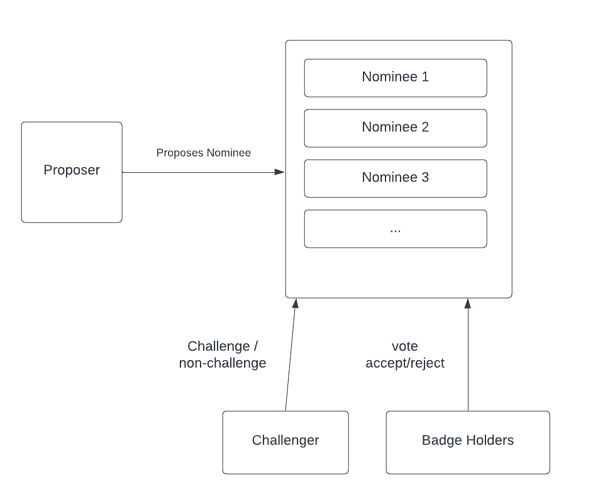Proposals for Optimism Retroactive public goods funding experiment #2
In January 2022 the Optimism collective ran its first experiment on Retroactive Public Goods Funding distributing $1 Million of rewards among the Optimistic Ethereum ecosystem.
I just published a blog post with a recap of experiment #1 and its learnings and proposals for a possible experiment #2.
Here you can find the orginal post on Optimism’s Retroactive public goods funding experiment #1
This post is a summary of Proposals for experiment #2
Improve badge holder voting and expertise
Curate a set of badge holders that are not only core contributors to the ecosystem but are also representative of ecosystem contributions overall.
This model could allow badge holders to leverage the knowledge in their area of expertise and allocate their votes with the highest degree of confidence that funds are allocated to the right projects
Improving the nomination process with optimistic curation
In Retro PGF we’re not only trying to agree on what was useful, but we’re also trying to agree on how useful it was. We can imagine a results oracle that breaks down the process into 2 separate phases - first assessing what projects have contributed to the public good and second quantifying the value created by the projects.
The current approach to curation is resource intensive by requiring badge holders to make consensus decisions on which proposals are accepted and which are rejected.
To fix this we could leverage existing designs from (token) curated registries, below a proposal for a simple process:
- Each nominee proposal requires a stake of x OP tokens
- During a challenge period, anybody can challenge a proposed nominee by putting up a counter stake of x OP tokens and describing how the proposal violates the Retro PFG constitution
- All the badge holders, or a random sample, are then asked to vote on accepting or rejecting the proposed nominee
- If there’s no challenge the nominee is accepted after the challenge period ends and the proposer receives back their stake + reward. If there is a challenge and the badge holders accept the nominee, the challenger loses their stake to the proposer. If there is a challenge and the badge holders reject the nominee, the proposer loses their stake in the challenger.
Illustration of curated registry for nominees
This reduces the overhead of badge holders, only requiring them to vote on disputed proposals and to voluntarily curate proposed nominees in their area of expertise rather than curating the whole list of nominees.
Conflicts of interest (of badge holders)
There’s no straightforward solution to this problem. Rather than expecting to resolve conflicts of interest altogether, a good approach could be to establish strong guidelines and increase transparency.
- Add a rule to the badge holder manual that voting for one’s own projects or voting for nominations that directly benefit oneself is forbidden
- Add a rule to the badge holder manual that possible conflicts of interest by voting for nominees are to be made transparent by badge holders
Happy to hear other ideas and feedback!
![]()
![]() Stay Optimistic
Stay Optimistic ![]()
![]()
